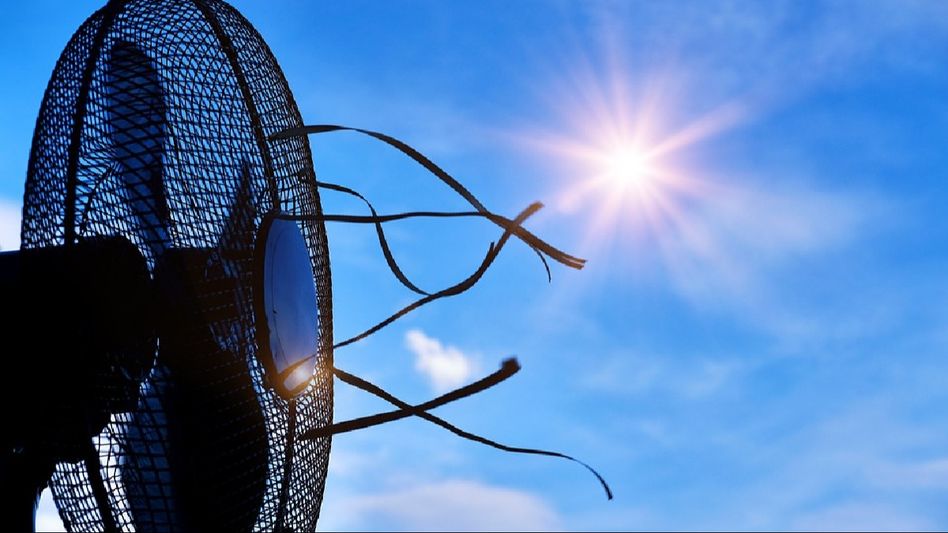Surviving the Scorch: Effective Strategies to Beat the Heat
As temperatures soar and the summer sun blazes, staying cool and comfortable becomes a priority. Extreme heat can pose serious health risks, including dehydration, heat exhaustion, and heatstroke.

As temperatures soar and the summer sun blazes, staying cool and comfortable becomes a priority. Extreme heat can pose serious health risks, including dehydration, heat exhaustion, and heatstroke.
1. Stay Hydrated
Hydration is the cornerstone of staying cool in hot weather. High temperatures cause the body to sweat more, leading to fluid loss. Drinking plenty of water throughout the day helps replenish lost fluids and keeps your body temperature regulated. Carry a reusable water bottle and set reminders to drink water regularly. In addition to water, consuming beverages like coconut water and herbal teas can provide essential electrolytes. Avoid excessive consumption of caffeine and alcohol, as they can contribute to dehydration.
2. Dress Appropriately
Choosing the right clothing can make a significant difference in how you feel during hot weather. Opt for lightweight, loose-fitting clothes made from breathable fabrics such as cotton and linen. Light-colored clothing reflects sunlight, helping to keep you cooler. Wearing a wide-brimmed hat and sunglasses can protect your face and eyes from direct sun exposure. If you need to be outside for extended periods, consider wearing moisture-wicking clothing to stay dry and comfortable.
3. Seek Shade and Avoid Peak Sun Hours
The sun's rays are most intense between 10 a.m. and 4 p.m. During these peak hours, it's best to stay indoors or seek shaded areas if you must be outside. Plan outdoor activities for early morning or late evening when temperatures are cooler. Using umbrellas, canopies, or natural shade from trees can provide relief from direct sunlight. When indoors, keep curtains or blinds closed during the hottest part of the day to block out the sun's heat.
4. Utilize Fans and Air Conditioning
Fans and air conditioning units are invaluable tools for maintaining a cool indoor environment. Ceiling fans help circulate air, creating a wind-chill effect that can make you feel cooler. Portable fans can be placed strategically around the house for maximum airflow. If you have air conditioning, set it to a comfortable temperature and use it efficiently by closing doors and windows to prevent cool air from escaping. Regular maintenance of AC units ensures they operate effectively during the hottest months.
5. Cool Your Living Space
There are several simple techniques to keep your home cool without relying solely on air conditioning. Place a bowl of ice in front of a fan to create a cool breeze. Use light-colored, reflective window coverings to block out heat. Consider installing thermal curtains or reflective window film to reduce heat gain. Cooking can generate a lot of heat, so opt for no-cook meals or use appliances like microwaves and slow cookers instead of ovens and stoves. At night, open windows to allow cooler air to circulate.
6. Take Cool Showers and Baths
A refreshing shower or bath can quickly lower your body temperature. Cool water helps dissipate heat from your skin and provides immediate relief. Taking multiple cool showers throughout the day can be particularly beneficial during extreme heat. Alternatively, soaking your feet in a basin of cold water or applying cold compresses to pulse points like wrists, neck, and temples can also help you stay cool.
7. Eat Light and Stay Nourished
Heavy, hot meals can increase your body's internal heat. During hot weather, opt for light, hydrating foods such as salads, fruits, and vegetables. Foods with high water content, like cucumbers, watermelon, and strawberries, can help keep you hydrated. Avoid heavy, protein-rich meals that require more energy to digest. Eating smaller, more frequent meals can also prevent you from feeling overheated and sluggish.
8. Stay Informed and Prepared
Keeping informed about weather conditions and heat advisories is crucial for staying safe during extreme heat. Check local weather reports regularly and be aware of heat warnings in your area. Have a plan in place for days when temperatures are expected to be dangerously high. This includes knowing where to find cooling centers, having a stock of water and cooling supplies, and knowing the signs of heat-related illnesses such as heat exhaustion and heatstroke.
Beating the heat requires a combination of proactive measures and practical strategies. By staying hydrated, dressing appropriately, seeking shade, using fans and air conditioning, cooling your living space, taking cool showers, eating light, and staying informed, you can navigate the challenges of hot weather with ease. These tips not only help you stay cool but also protect your health during the hottest months. With a thoughtful approach, you can enjoy the summer season while staying comfortable and safe amidst the scorching heat.
Copyright©2025 Living Media India Limited. For reprint rights: Syndications Today









